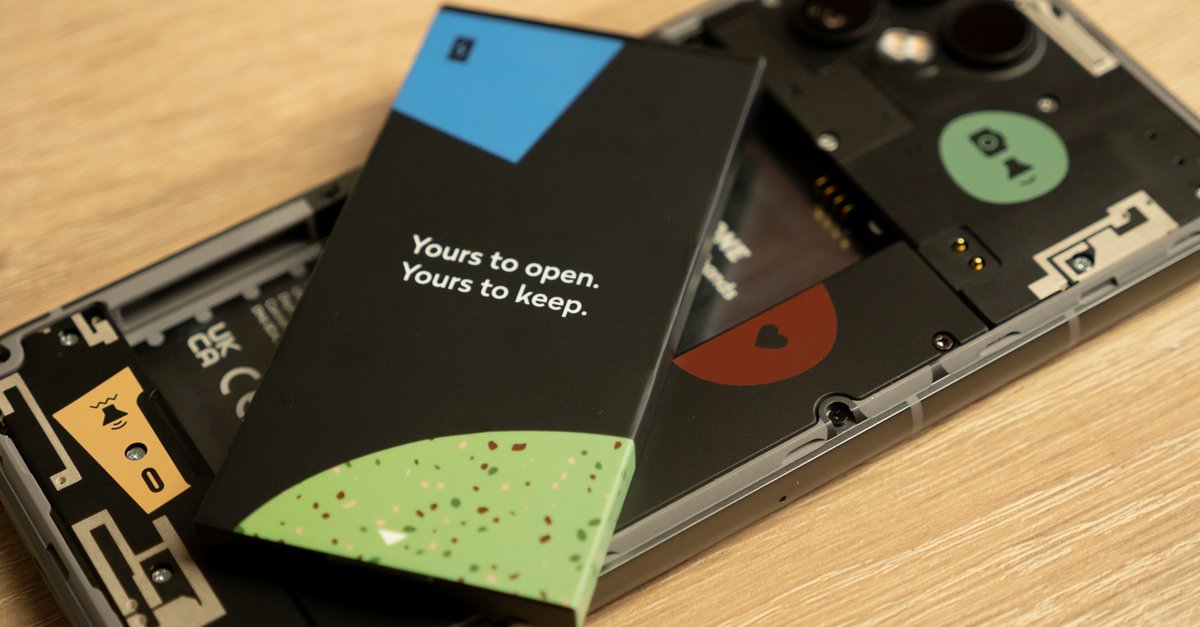Germans really pay attention to this when buying a mobile phone
Every receipt is a ballot paper: You can also make climate-friendly purchasing decisions in consumer electronics. But as new study results show, we in Germany are below the global average.
In Germany, less than half pay attention to sustainable consumption
There are various companies operating in the Manufacturing of consumer electronics respect the environment: In the field of smartphones, for example, there is the Fairphone brand, which has set itself the task of manufacturing cell phones as fairly as possible (to test the Fairphone 4). However, electronics giants such as Samsung and Apple are also using their products to draw more and more attention to environmental problems.
The market research institute YouGov has one Study in the context of safety and sustainability of consumer electronics carried out in 18 countries (source: YouGov). Various aspects related to the purchasing behavior of the respondents were in the foreground, including whether the environmentally conscious work of the respective electronics brands has an influence on the purchase decision. 52 percent of those surveyed worldwide agree with this statement, whereby in Germany, at 48 percent, less than half on sustainability pay attention In India and Mexico, on the other hand, it is 73 percent each.
On the other hand, there was the question of whether brand, functions and model are more relevant, which was supported by 50 percent of the participants worldwide. This statement is specifically true 44 percent of the German participants to. So both sides are more or less in balance – similar to China, Australia and Great Britain – but are each lying below the world average.
By the way stand globally Smartphones with 32 percent in first place when buying electronics, followed by laptops at 17 percent and televisions (15 percent). Game consoles and smart fitness devices each take 7 percent of the bottom places. But what do the respondents do with the devices when they no longer need them? According to YouGov, most used devices gather dust in drawers at home. But passing it on to family and friends is also very popular at 36 percent, followed by selling (28 percent) and recycling (26 percent). Since in old devices many metals and materials that can be reused for new technology (keyword: circular economy), recycling is one of the most environmentally friendly solutions in times of raw material shortages.
If companies campaign for more environmental awareness, accusations of greenwashing are quickly raised. But what does that actually mean?
Sustainability and data protection will become more relevant in the future
The study also dealt intensively with specific purchase criteria. Globally, in the past 12 months with 64 percent of the price the most important reason to buy, followed by special features (48 percent) and ease of use (43 percent). In contrast, privacy and data protection are in eighth place at 20 percent, followed by color (20 percent) and last Sustainability with just 14 percent.
But the study also determined how the various aspects will be classified in the future: While price, user-friendliness and special features still conquer the podium, it follows in fourth place is data protection, followed by sustainability in fifth place. From the point of view of the buyer, the conscious use of technology – be it in the direction of environmental friendliness or data protection – will attract more attention.
Would you like to read more about sustainability? Then we have suitable articles for you here:
Don’t want to miss any more news about technology, games and pop culture? No current tests and guides? Then follow us
Facebook
or Twitter.



